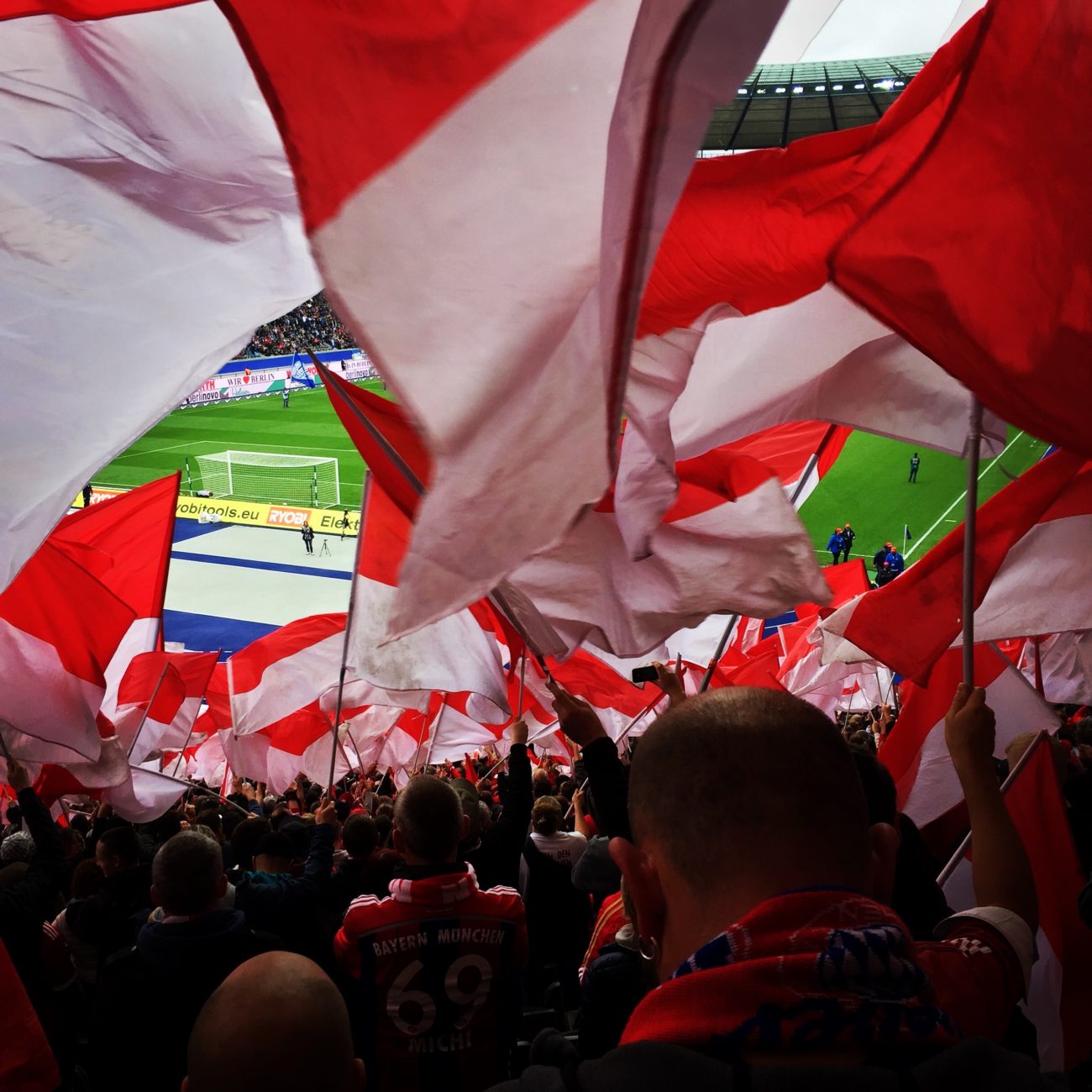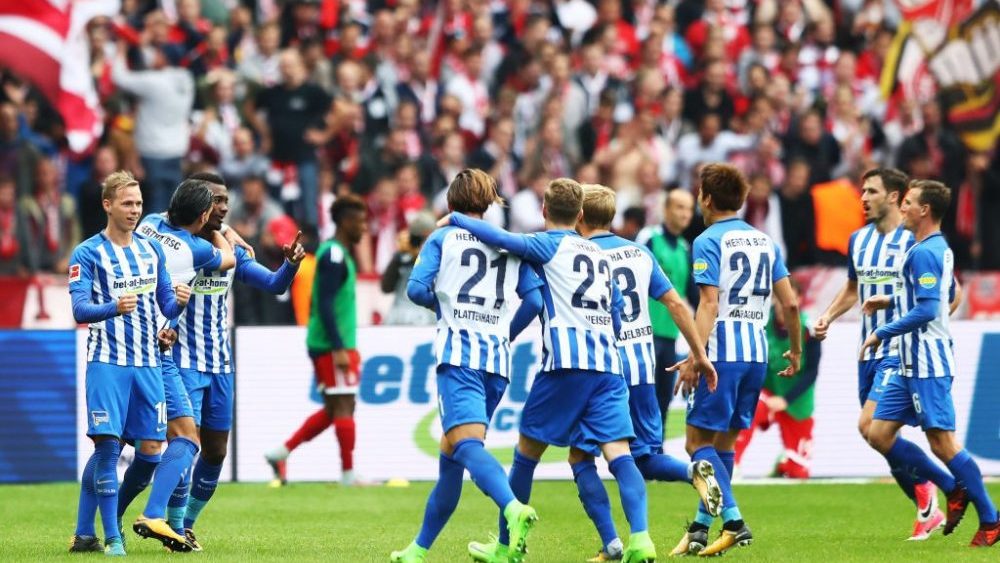Preview: Hertha BSC – FC Bayern
When the record champion visits the capital, the Olympic Stadium is usually sold out. It is one of those few days of the season in which Hertha plays against a truly impressive backdrop.
These guest appearances are often unpleasant for FC Bayern. Most of the time they had to start their journey in February or March – in bitterly cold temperatures, because that’s the law. When the champion is a guest, the capital’s feel-good temperatures are a rarity.
And Hertha under Pál Dárdai has also developed a basic aggressiveness in recent years that makes it difficult for any opponent to take away points from Berlin. A trip to Berlin is therefore nothing for good-weather footballers.
Hertha and the next step
And yet, the Hertha team’s seasonal balance in their home Olympic stadium is not too bright. After the 2:2 against FC Bayern last year, there were 6 wins, 6 draws and 6 defeats in the following home games. This was not least due to a very weak second half of the season.
In the new, still very young season there were at least two wins against Nuremberg and Gladbach. Especially against Borussia, Hertha knew how to convince. Often spurned as a grey mouse because they could not play convincingly enough, Dárdai’s team showed first progress compared to the last years.
The problem of Hertha not being able to create any dangerous attacking chances from their own build-up seems to be solved by the new players. The main cause was identified in the central midfield. In the past, the Hertha players were far too seldom able to create deep passing options and to build up the game through the centre. Usually, the balls went quickly to the sidelines, where then individual actions or crosses were the weapons of choice. That was at times too predictable.
A new addition, Marko Grujic, seemed to solve the problem in the last weeks. Especially against Gladbach, the loan from FC Liverpool convinced with his technical abilities and clever runs. Together with Arne Maier, he not only ensured stability in the centre, but also more passing options between the opponents’ lines. This strengthened Hertha’s ball circulation and finally added some risk to the build-up game.
Instead of always playing laterally, they finally got speed and verticality into their own game. This is also due to Ondrej Duda, who not only occupies the spaces between the lines well on the ten, but also knows how to support Ibisevic with his advancements.
All in all, the Hertha’s centre has developed considerably, especially in technical terms. But now Grujic is injured for the time being. This means that Dárdai must find solutions that connect the deeper Maier and the offensive Duda. With Lustenberger, this didn’t work out too well in Bremen, so the higher risk was punished by a team that also played well.
But if the build-up of the game via the centre doesn’t work, Dárdai has two more weapons. Lazaro (nominal right-back) and Dolrosun (left wing) are currently performing on the two flanks. Both are fast, strong dribblers and hard to stop. Especially Lazaro with his diagonal dribblings from deep often caused danger, if the own build up did not work out.
The old lady will also try to get into such dribblings against Bayern and make room for herself. Already in the past duels Hertha managed to make the centre compact and to apply needlesticks with counter-attacks. It will be similar again this time.

(Own photo)
Drawing the right conclusions after the Augsburg game
It is therefore all the more important for FC Bayern that their own passing game is more secure than against FC Augsburg. There, the record champion lacked an anchor player on the six. Martínez showed his usual weaknesses in the build-up and often disappeared in the cover shadows. Thiago should therefore return to the pitch in Berlin.
With him Bayern has the necessary means to play between Berlin’s tight chains of four. On the eight positions, James can also be expected, who recently played strongly. This axis alone should be enough to confront Hertha with problems.
Kovač should not draw too many negative conclusions from the game on Tuesday evening. His basic idea to rotate before the heavy duels with Hertha and Ajax was right. Perhaps in the future, however, he should pay more attention to having at least one strategic anchor in the midfield that reinforces the structure of the game.
That could have happened against Augsburg, for example, if Kimmich had moved inside during possession and if Martínez had dropped between the central defenders. Above all, however, Kovač should take home the fact that his changes had a decisive influence on the game.
Ribéry could not help the Bayern game as much as Gnabry did. In any case, it was a bit incomprehensible why Gnabry, who played so little recently, had to leave the pitch so early. Maybe Kovač is even flirting with an assignment in Berlin.
By replacing Wagner, too, Kovač may have sent out the wrong signal. But all this is part of the development process that team and coach have to go through. To question the rotation because of a bad result would be the wrong approach. Bayern will have several more games this season in which Kovač will have to make tradeoffs. That’s just as much a part of it as losing one or two points.
Against Hertha, Kovač must bring back stability. Hertha’s Lazaro may be very talented and dangerous in the offensive, but his advances also create space. The learned winger can still be caught by surprise here and there. That would also speak in favour of Serge Gnabry, who, in contrast to Ribéry, recently convinced with his penetrating power and determination.
FC Bayern can already be back on the road to success in Berlin. Just in time for Bayern’s guest appearance, Berlin and Brandenburg are getting a little cooler – that’s what the law wants. But with 11 degrees expected in the evening, bitterly cold temperatures are not to be expected. But Dárdai will bring his team up to operating temperature and so the Munich team expects another aggressive, compact and this time perhaps even strong opponent. There could be easier tasks after a setback to avoid further losses of points.









